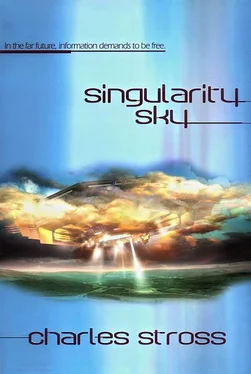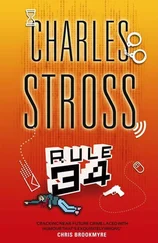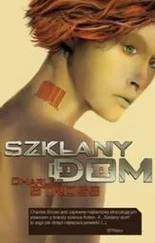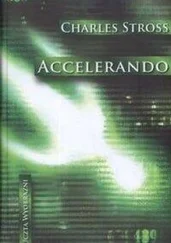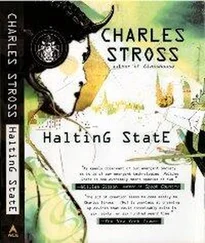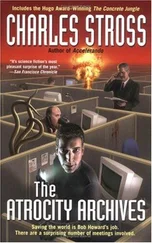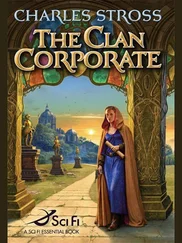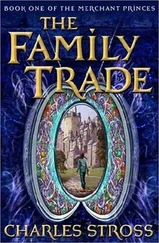Charles Stross - Singularity Sky
Здесь есть возможность читать онлайн «Charles Stross - Singularity Sky» весь текст электронной книги совершенно бесплатно (целиком полную версию без сокращений). В некоторых случаях можно слушать аудио, скачать через торрент в формате fb2 и присутствует краткое содержание. ISBN: , Жанр: Фантастика и фэнтези, на английском языке. Описание произведения, (предисловие) а так же отзывы посетителей доступны на портале библиотеки ЛибКат.
- Название:Singularity Sky
- Автор:
- Жанр:
- Год:неизвестен
- ISBN:9788495024121
- Рейтинг книги:5 / 5. Голосов: 1
-
Избранное:Добавить в избранное
- Отзывы:
-
Ваша оценка:
- 100
- 1
- 2
- 3
- 4
- 5
Singularity Sky: краткое содержание, описание и аннотация
Предлагаем к чтению аннотацию, описание, краткое содержание или предисловие (зависит от того, что написал сам автор книги «Singularity Sky»). Если вы не нашли необходимую информацию о книге — напишите в комментариях, мы постараемся отыскать её.
Singularity Sky
Singularity Sky — читать онлайн бесплатно полную книгу (весь текст) целиком
Ниже представлен текст книги, разбитый по страницам. Система сохранения места последней прочитанной страницы, позволяет с удобством читать онлайн бесплатно книгу «Singularity Sky», без необходимости каждый раз заново искать на чём Вы остановились. Поставьте закладку, и сможете в любой момент перейти на страницу, на которой закончили чтение.
Интервал:
Закладка:
“Er.” Vassily looked puzzled. “Four k.p.s. Isn’t that a bit fast?”
“No it’s—” A high-pitched roar cut into Rachel’s explanation, jolting everything in the capsule back toward the rear bulkhead. Ten seconds passed. “It’s only about Mach 12, straight down. And we’ll have dropped the engines overboard, first. But don’t worry, we’ll slow up pretty fast when we hit the atmosphere. They used to do this sort of thing all the time during the Apollo program.”
“The Apollo program? Wasn’t that back in the days when space travel was experimental ?” Martin noticed that where Vassily was gripping the back of his chair, the lad’s knuckles had turned white. How interesting .
“Yeah, that was it,” Rachel said casually. “’Course, they didn’t have nuclear power back then — was it before or after the Cold War?”
“Before, I think. The Cold War was all about who could build the biggest refrigerator, wasn’t it?”
“Cold War?” piped Vassily.
“Back on Earth, about four, five hundred years ago,” Rachel explained.
“But they were doing this, and they couldn’t even build a steam engine?”
“Oh, they could build steam engines,” Martin said airily. “But they powered them by burning rock oil under the boilers. Fission reactors were expensive and rare.”
“That doesn’t sound very safe,” Vassily said dubiously. “Wouldn’t all that oil explode?”
“Yes, but Earth is an early population three planet, and quite old; the isotope balance is lousy, not enough uranium-235.”
“Too damn much if you ask me,” Rachel muttered darkly.
“I think you’re trying to confuse me, and I really don’t like that. You think you’re so sophisticated, you Terrans, but you don’t know everything! You still can’t keep terrorists from blowing up your cities, and for all your so-called sophistication you can’t control your own filthy impulses — meddling fools by politics, meddling fools by nature!”
Another burp from an attitude control thruster. Rachel reached over and grabbed Martin’s shoulder.
“He’s got us nailed.”
“Aye up, ’e’s got us bang to rights. It’s a fair cop, guv.” Vassily glanced from one of them to the other in bewilderment; his ears began to glow bright red. Rachel laughed. “If that’s meant to be a Yorkshire accent, I’m a Welsh ferret, Martin!”
“Well, I’d be pleased to stuff you down my trousers any day of the week, my dear.” The engineer shook his head. Out of the corner of his eye, he noted Vassily’s glow spreading from ears to neck. “You’ve got a lot to learn about the real world, kid. I’m surprised your boss let you out on your own without a minder.”
“Will you stop calling me a child!”
Rachel hunched around in her chair and stared at him. “But you are, you know. Even if you were sixty years old, you’d still be a child to me. As long as you expect someone or something else to take responsibility for you, you’re a child. You could fuck your way through every brothel in New Prague, and you’d still be an overgrown schoolboy.” She looked at him sadly. “What would you call a parent who never let their children grow up? That’s what we think of your government.”
“But that’s not why I’m here! I’m here to protect the Republic! I’m here because—” The main motor went critical and spooled up to full power with a deep bass roar, rattling the capsule like a tin can in a hurricane. Vassily was shoved back into his hammock, gasping for breath; Rachel and Martin subsided into their seats, slugged by a solid twenty meters per second of acceleration— not the five-hundred-kilo chest-squishing gorilla of reentry, but enough force to make them lie back and concentrate on breathing.
The engine burned for a long time, carrying them away from the drifting wreckage of battle, toward an uncertain rendezvous.
Delivery Service
The husks of two spent Bouncer ships drifted toward the edge of the system, tumbling end over end at well over stellar escape velocity. They didn’t matter anymore; they’d done their job.
Behind them, the wreckage of the New Republican home fleet scattered like ashes on a searing hot wind.
Two-thirds of the ships bubbled and foamed, engineering segments glowing red-hot as the disassembler goop stripped them down; bizarre metallic fuzz sprawled across their hulls, like fungal hyphae drilling through the heart of dead and rotting trees. Almost all of the other warships were boosting at full power, pursuing escape trajectories that would take them back into deep space. The space around Rochard’s World was full of screaming countenneasure signals, jammers and feedback howlers and interferometry decoys and penaids that — unknown to their owners — were proving as effective as shields slung over the backs of tribesmen fleeing in the face of machine-gun fire. A scattering of much smaller, slower ships continued to decelerate toward the planet ahead, or coasted slowly in. For the most part the remaining Bouncers ignored these: lifeboats weren’t generally troublemakers. Finally, coasting in from a range of astronomical units, came the first trade ships of the merchant fleet that followed the Festival around. Their signals were gaily entertaining, flashy and friendly: unlike the New Republic, these were not ignorant of the Festival, its uses and hazards.
But the Festival barely noticed the approaching trade fleet. Its attention was directed elsewhere: soon it would give birth to its next generation, wither, and die.
Antimatter factories the size of continents drilled holes in the fiery solar corona, deep in the curved-space zone just outside the photosphere of Rochard’s star. Huge accelerator rings floated behind their wake shields, insulated by kilometers of vacuum; solar collectors blacker than night soaked up solar energy, megawatts per square meter, while masers dumped waste heat into the interstellar night overhead. Every second, milligram quantities of antimatter accumulated in the magnetic traps at the core of the accelerators. Every ten thousand seconds or so, another hazardous multigram payload shipped out on a beamriding cargo pod to the starwisp assembly zone around Sputnik. There were a hundred factories in all; the Festival had dismantled a large Kuiper body to make them and placed the complex barely a million kilometers above the stellar surface. Now the investment was paying off in raw energy, a million times more than the planetary civilization had been able to muster.
The starwisps weren’t the Festival’s only cargo, nor were the Fringe and the Critics the only passengers to visit the planetary surface. Deep in the planetary biosphere, vectors armed with reverse transcriptase and strange artificial chromosomes were at work. They’d re-entered over the temperate belt of the northern continent, spreading and assimilating the contents of the endogenous ecology. Complex digestive organs, aided by the tools of DNA splicing and some fiendishly complicated expression control operons, assimilated and dissected chromosomes from everything the package’s children swallowed. A feedback system — less than conscious but more than vegetable — spliced together a workable local expression of a design crafted thousands of years ago; one that could subsist on locally available building blocks, a custom saprophyte optimized for the ecology of Rochard’s World.
Huge Lamarckian syncitia spread their roots across the pine forest, strangling the trees and replacing them with plants shaped like pallid pines. They were fruiting bodies, mushrooms sprouting atop the digested remains of an entire ecosystem. They grew rapidly; special cells deep in their cores secreted catalytic enzymes, nitrating the long polysaccharide molecules, while in the outer bark long, electrically conductive vessels took shape like vegetable neurons.
Читать дальшеИнтервал:
Закладка:
Похожие книги на «Singularity Sky»
Представляем Вашему вниманию похожие книги на «Singularity Sky» списком для выбора. Мы отобрали схожую по названию и смыслу литературу в надежде предоставить читателям больше вариантов отыскать новые, интересные, ещё непрочитанные произведения.
Обсуждение, отзывы о книге «Singularity Sky» и просто собственные мнения читателей. Оставьте ваши комментарии, напишите, что Вы думаете о произведении, его смысле или главных героях. Укажите что конкретно понравилось, а что нет, и почему Вы так считаете.
